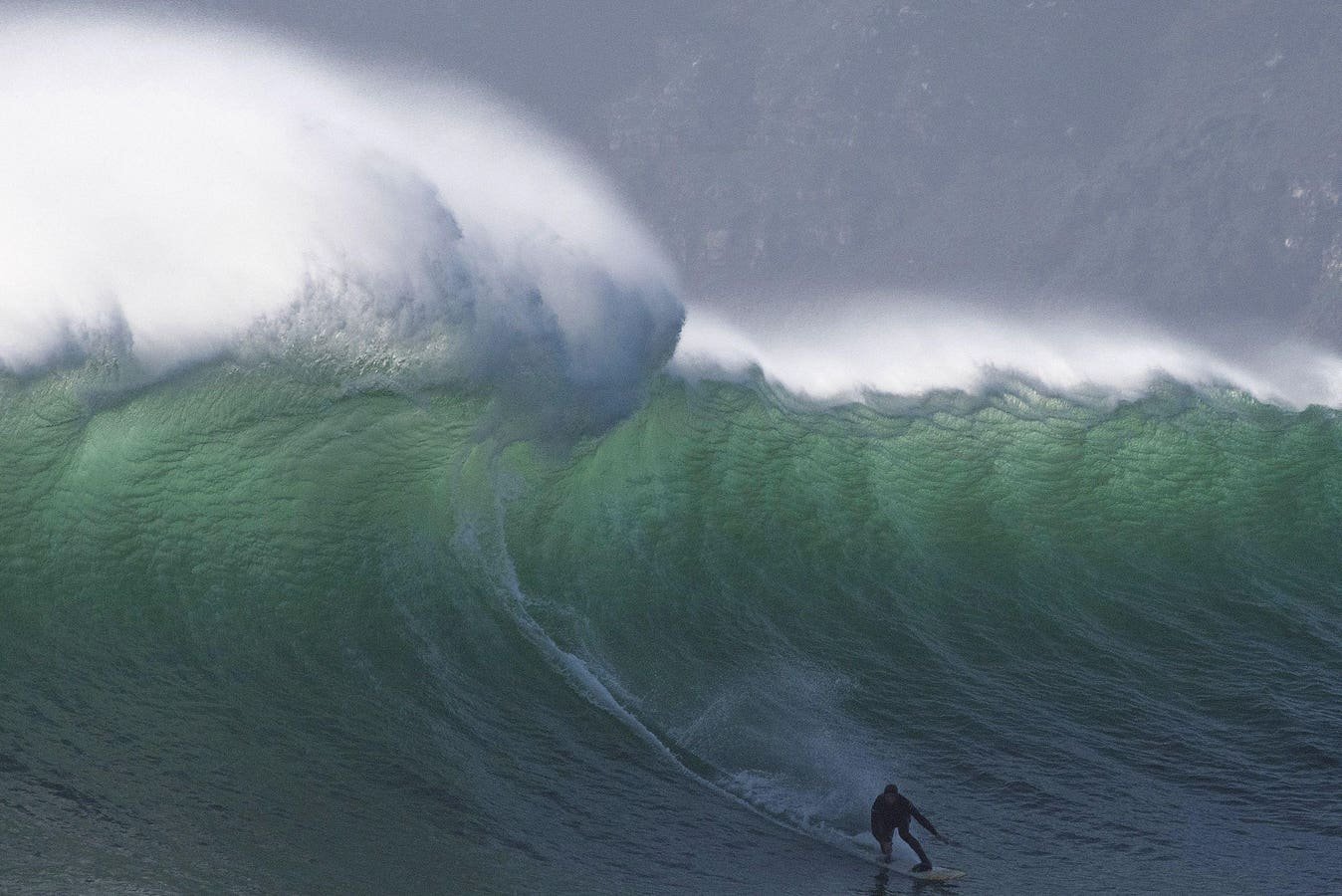TOPSHOT – A surfer catches a wave at Sunset, an offshore surfing spot close to Hout Bay, that … [+]
Renewable energy is sometimes almost sort of like a buzzword in the halls where energy policy is discussed. But it’s a major part of current research, and there are different categories of renewable energy research going on.
One such sub-topic in the world of renewables is wave energy, the production of useful energy from sea and ocean waves. Let’s talk about that.
To get a closer perspective, you can get some details on how the IEEE promotes digital twins for environmental models, but you can also take a look at some of the leading companies in this space.
The Story of Inna Braverman
Inna Braverman has an interest in the natural world. Together with David Leb, she has founded a company called Eco Wave Power that seeks to harness the power of bodies of water to produce clean energy.
But her origin story is compelling: Braverman was born in Ukraine, just weeks before the Chernobyl nuclear event, and was in severe respiratory distress soon after birth. Her mother, a nurse, resuscitated her as an infant – a few years later, the family moved to Akko in Israel.
The rest is chronicled on the web, with Braverman’s career as an entrepreneur and researcher also highlighted. I was pleased to witness a panel at Davos this January with Braverman and fellow participants Tod Hynes, Amanda Rischbieth, and Maria Ivanova. Here, the group talked about how to use AI to help promote good results with wave energy and other forms of renewables.
Quotes from Panelists:
“I think what we have is a platform that is a known platform globally, bringing together the best of the best in minds and the latest in research, intelligence, collaboration and history, and so this is the right (place) to be, at the Architects of the Global Future Summit.” – Amanda Rischbieth
“I think that Davos and the World Economic Forum is a world center of scientific minds, of business minds, of governmental minds, and really development of a new energy field, a new renewable energy source, such as the power of the waves, requires the cooperation of all these different populations, of government, of financiers, of business organizations, of the brightest science minds, and so on. Wave Energy is a new source of renewable energy. So I think my most important goal here is to create awareness about the fact that wave energy exists, and not only that it exists, but it’s also on its path to commercialization in the United States.” – Inna Braverman
As a scholar of global governance, the architecture of global governance is what motivates me. As the Director of the School of Public Policy and Urban Affairs at Northeastern University, I lead the hub for doers and dreamers who think and act locally and globally. This is why I’m here at Davos: to connect with other doers and dreamers, and I’m delighted to be with you on this panel.” – Maria Ivanova
Talking About Change
One question Hynes asked his fellow panelists was how those attending data and related events can help get the message out to people who weren’t able to attend.
“I think … there’ll be a lot of stories and clips that come out of (this event) and that we can all share them, and our networks can share them,” Rischbieth said, noting that she spent a year at Harvard and MIT “purely immersed in AI” and saw a lot of startup activity going on. “This (kind of change) will spread like wildfire. And the great thing about it is, the cost of capital to enter is way lower. If you get so far in a no-code environment ….before you need to go and raise any capital, you can get a long way ahead.”
Braverman herself talked about the value of media coverage, and even gave a shout-out to Forbes.
“(I’ve met) amazing, inspirational speakers, investors, people from the Department of Energy of the United States, which are, of course, all very necessary to make wave energy a success,” she said of events and conferences.
“I’m going to teach about it,” added Ivanova, who is a professor at Northeastern University in Boston. “I can bring the discussions from Davos, the serendipities that happen here, into the classroom …. because now, we connect online. We connect on LinkedIn. So I would actually challenge us here. I would challenge the architects of the global future. What training can we do, like a LinkedIn course that actually shares the experiences …. the lessons? How can we connect people beyond the physical boundaries of these rooms?”
As for Hynes, he ruminated on how he learned about the potential around Davos relatively recently, and wished he had participated more in past years as a CEO. He noted how an MIT student helped to get him involved in a tradition of bringing groups to the event.
“We’re really trying to make it more accessible, and it’s really exciting to meet everybody here,” he said. “I’ve been very impressed with what everyone’s doing.”
Ivanova ended the panel with an appeal to the value of the new generation of learners.
“Being in the classroom every day makes us want to stay on that edge,” she said. “So keeping up with the young people of today, keeping up with my colleagues who keep researching on new and more innovative ideas, is really the key to being up to date, on the edge, and innovating all the time.”
I’ll continue to bring you more inspiring stories from current events and the world around AI and the environment. Stay tuned.











